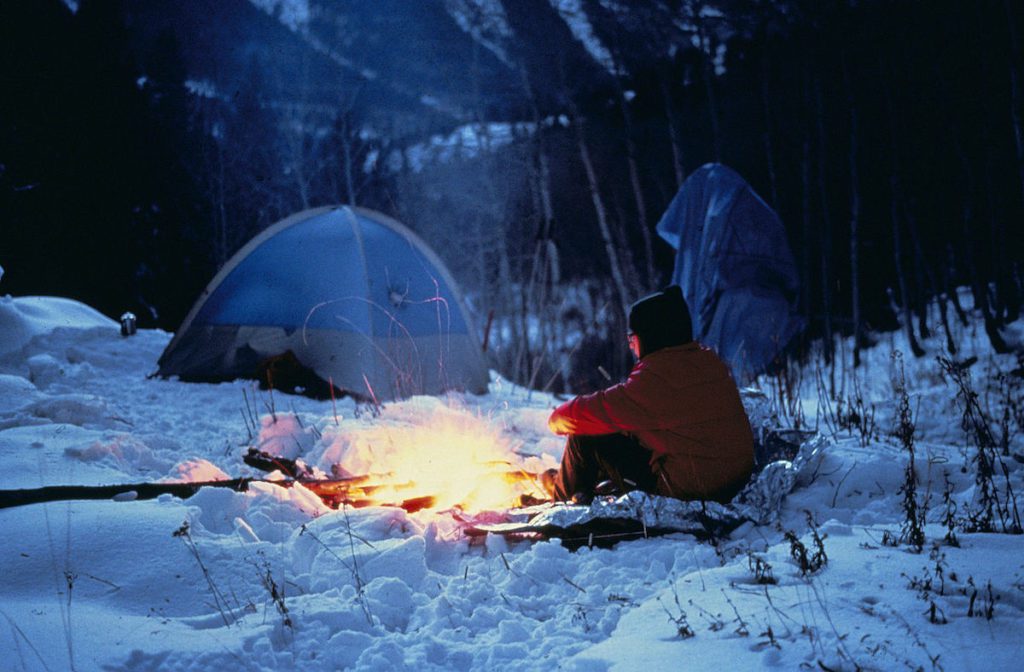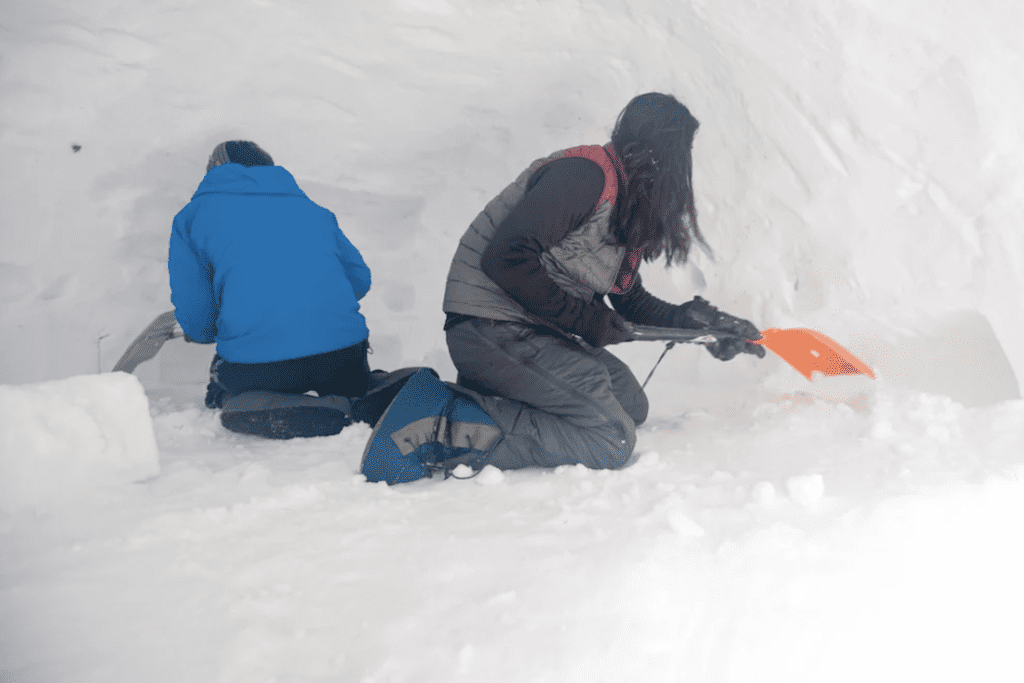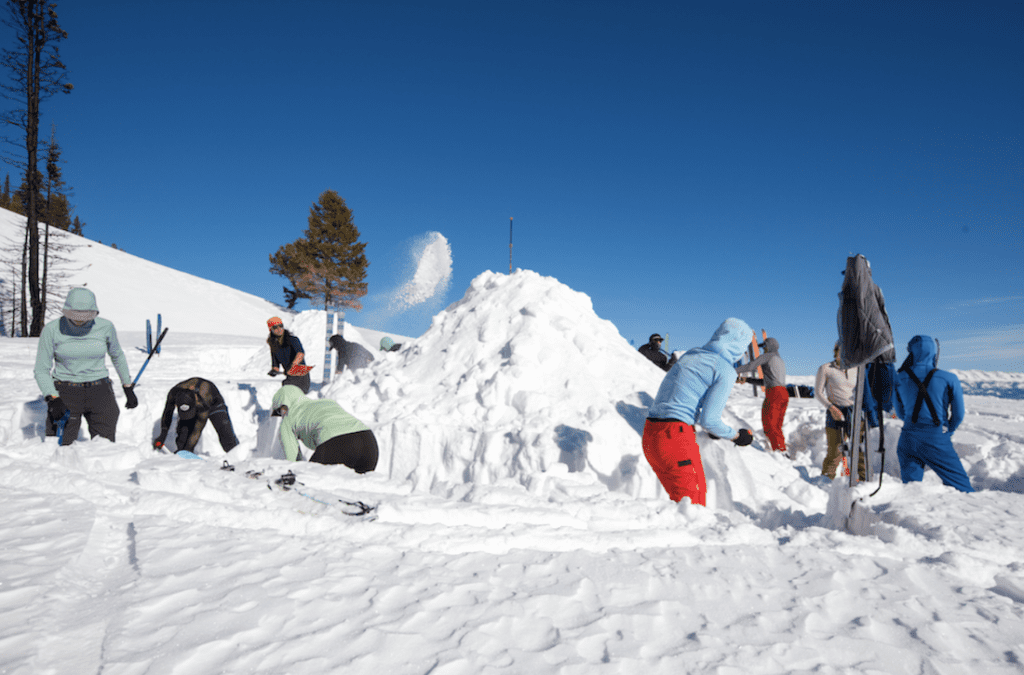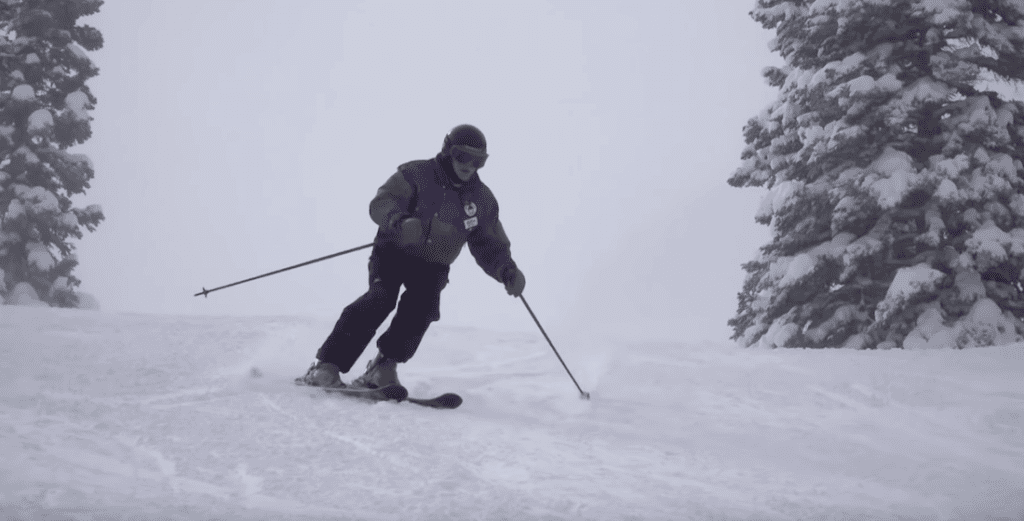The winter ultra racing community has never been a particularly large one, and it probably never will be, but for the folks who challenge themselves to cover long distances in potentially bitterly cold conditions, being an integral part of that small community is a big draw.
Since the early 2000s, I’ve followed the Iditarod Trail Invitational (ITI) with fascination as participants on bike, foot, and ski traversed 350 or 1000 miles across Alaska on the famed Iditarod Trail. I never could see myself as a participant in such an event, but it sure was impressive to hear stories of riders endeavoring through the depths of winter for days on end no matter the conditions.
Gradually, more winter ultras began to appear in the higher latitudes of North America – the Arrowhead 135 in northern Minnesota, the Tuscobia Winter Ultra in Wisconsin, the Fat Pursuit in Idaho, the Montane Yukon Ultra in Canada, and more.

Over the years that the winter ultra scene has expanded, my own fascination with mountain bike ultraendurance and bikepacking challenges has become deeply rooted. I managed to win quite a few events, learned a remarkable amount, and fell in love with long-distance bike travel, both in racing and touring modes.
But still, I looked at the seemingly crazy winter-loving folks in the winter events with a mix of awe and admiration. There seemed to be a growing number of cyclists, runners, and skiers absolutely in love with the winter ultra scene. Some of these folks were focused on going fast and placing well, but most were in it for the personal challenge and satisfaction of thriving (or striving to thrive) in the snow and cold.

Suddenly, my own place watching from the sidelines of the winter ultra world changed a few years ago when my teammate and longtime friend Kait Boyle was in a bad car wreck in Idaho on Christmas Eve. I drove north from my home in the much-warmer state of Arizona to help out in the aftermath of the accident.
Upon arriving to Kait’s room in the ICU, the first thing she asked me was if I was going to stick around for Fat Pursuit. I didn’t even know when the event was, I hadn’t ridden a fat bike in years, and I hadn’t packed much of any winter gear or clothing.
It turned out Fat Pursuit was just a week away, and the Teton Valley fat bike enthusiasts banded together to convince me to join in the fun, got me on a borrowed Pivot Les Fat bike, and race organizer Jay Petervary invited me over to his house to outfit me with everything else I might need. Winter riding advice poured in from friends new and old, and that whirlwind of generosity plopped me right down on the starting line for a 200-mile-long winter ultra with a bunch of other grinning, nervous crazies.

That was 2018. Fast forward to January of 2022, and I unexpectedly found myself back on the Fat Pursuit startline for a third time – a bit peculiar for a guy from Arizona, eh?
Jay named the event “Fat Pursuit” because in his eyes, it’s not a race. He didn’t set out to create a competition, but rather an opportunity. A pursuit is a passion and something you labor to get better at. I pursued my own new-found and somewhat perplexing love for this sort of winter adventure to Alaska in 2020, winning the ITI350 race and then touring on the Iditarod Trail for another five days before the Covid pandemic found its way to the remote Interior.
This year, I made a rather last-minute decision to head back to the Fat Pursuit in large part because of how many friends were going to be there. I hadn’t seen some since Alaska, and the endless enthusiasm of other friends for this event was a strong pull to return. That strong and welcoming sense of community isn’t one I’ve felt in many other places around the cycling world, and it’s quite a special one.
At this year’s edition of the event, I spent a lot of time looking around to try to figure out just what creates that sense of community. There’s no single source, though, nor does it come from just one or two individuals – it’s countless small contributions from so many different people.
It’s the emphasis on the you part of the Pursuit. It’s the volunteer groomers driving snowmachines around all night long to make the course as firm as they can; these folks are all past participants. It’s the incredible checkpoint volunteers doing everything they can to help participants keep moving forward. It’s the volunteers ready to go pick up a stranded participant should things go south. It’s Jay and Tracey Petervary putting on “Fat Camps” before the event to help folks learn more about winter backcountry travel and safety to build confidence and skills. It’s all the participants, as well as Jay and Tracey, hanging out at the finish line to cheer everyone in. It’s the professional and amateur athletes learning and struggling and finding success, side by side. It’s seeing participants, like myself, coming back year after year to build on lessons learned in prior editions of the event.

And it’s all the folks out on course who end up working together to move through whatever conditions the trail and sky delivers on that particular weekend.
The highlight this year for me was being at the finish line when fellow Arizonans Jennifer and Jason Hanson came across the finish line of the 200 km event. Lovers of the warm Sonoran Desert, this pair of experienced bikepackers aren’t who one might expect to see in a winter ultra. Last winter, Jason participated in one of the Fat Camps, finished Fat Pursuit, and went on to finish the ITI350 in Alaska, all in his first few months of riding on snow.
This winter, Jennifer is following the exact same progression, and the pair completed Fat Pursuit together, grinning and as proud as can be. Conditions on the trail had been some of the slowest and most challenging I’ve experienced. At the finish, Jennifer thanked Jay for telling her to stop after one checkpoints, bivy for a few hours, and then push on; she had been ready to throw in the towel, but Jay’s insistence that she just stop for a short rest was all she needed in order to continue to the end.

To me, the beauty of events like these are that they help people discover what they’re capable of in an encouraging and supportive atmosphere. The warmth of this winter ultra community is especially powerful as everyone roots for everyone else.
Photos courtesy of the author.
Read more :
-
Hunting Numbers Are Down—So What Does That Mean for Conservation Funding?
-
Review: Patagonia’s Crazy Light Middle Fork Waders
-
After a Near-Disastrous Winter, Vail Resorts Raising Wages and Opportunities
-
Cotopaxi: Ecuador’s other national park

